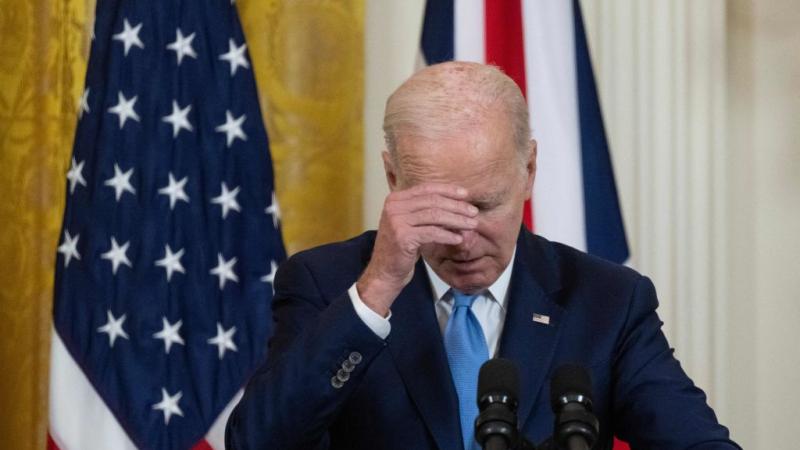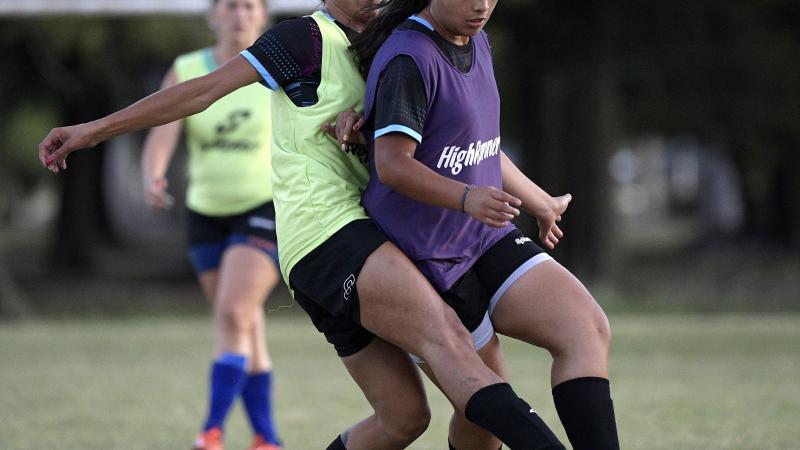Georgia 'pen and paper' signature rule is 'voter suppression,' left-wing lawsuit alleges
Rule that absentee ballot applications must be signed by hand is a "pretext to unfairly disqualify voters, particularly Black and Brown voters, from their constitutional right to vote," claims chairman of Democrat super PAC.
A coalition of left-wing activist groups led by controversial Democrat election lawyer Marc Elias is suing the Georgia State Election Board for requiring that absentee ballot applications be signed by hand, calling it "voter suppression" unfair to minority voters.
Under Georgia's SB 202, the election integrity law enacted in the state last year, "absentee ballot applications must be signed with pen and ink in order to be valid, which is commonly referred to as a wet signature requirement," according to Democracy Docket, an election law advocacy platform founded by Elias.
"This requirement means that digital or electronic signatures are not accepted and the voter must physically put pen to paper to create a valid signature," Elias' website explains. "In other words, under this requirement, an individual can fill out an absentee ballot application online, but then must print out the application in order to sign it with pen and paper before submitting it online, by mail or in person."
The lawsuit, filed Monday in federal distrcit court in Georgia, argues that voters "who rely on absentee ballots and lack access to printers, scanners, or fax machines" may be disenfranchised as a result of Georgia's "arcane rules and administrative traps."
Plaintiffs listed in the lawsuit are Democrat get-out-the-vote organization Vote.org, Georgia Alliance for Retired Americans, and progressive super PAC Priorities USA.
"The ability to complete and sign applications electronically significantly expands registration opportunities for many voters of color who might have limited access to printers or mailing facilities, or those who otherwise need assistance to register," said Vote.org CEO Andrea Hailey.
"Georgia's Wet Signature Rule imposes unnecessary roadblocks that are not only hopelessly out of step with other provisions of Georgia law, but also creates undue burdens for voters and the organizations that help them register, all while failing to advance any sufficient state interest that could justify such restrictions," she claimed
"The requirement of a 'wet' signature on an absentee ballot application simply creates a pretext to unfairly disqualify voters, particularly Black and Brown voters, from their constitutional right to vote," said Priorities USA Chairman Guy Cecil. "This rule is yet another attempt by the Georgia legislature to suppress the right to vote.
"Onerous requirements like this have historically been used to dilute the political power of marginalized communities. Priorities USA has been fighting voter suppression in the courts since 2015 and we will continue to work against these discriminatory policies."
Georgia Secretary of State Brad Raffensperger is confident the suit will fail.
"Like for all of Marc Elias', Stacey Abrams' and their allies' previous fairy-tale lawsuits, this frivolous suit will lose in court," Raffensperger told Just the News on Tuesday. "It never ceases to amaze me the extent liberal groups will bend and twist to undo common sense election security measures. They tried to get rid of signature requirements before and failed, and they'll fail again here."
Democratic Georgia gubernatorial candidate Stacey Abrams' Fair Fight Action Inc. group is engaged in a lawsuit against the Peach State over its "exact match" ID and citizenship checks for voters.
Elias has a history of fighting election integrity protections, including when he "filed numerous lawsuits in 2020 to change election rules at the last moment, targeting the basic security protocols that states have in place to protect the security of the election process," Hans von Spakovsky, a senior legal fellow at the Heritage Foundation, told Just the News.
Elias is a former partner at the Perkins Coie law firm, which represented Hillary Clinton's 2016 presidential campaign. As in 2020, he is again spearheading a legal offensive to weaken election security safeguards, focusing on four priorities: free postage for mail-in ballots, counting ballots that arrive after Election Day as long as they are postmarked on or before Election Day, easing signature matching laws, and legalizing ballot harvesting.
In response to doubts about election security raised by the 2020 election, Republican-led states scattered around the country have passed a flurry of election integrity laws, often provoking legal challenges in response.
Arizona, for example, passed a law requiring citizenship verification to vote. Less than a day after the law was enacted, however, a lawsuit was filed against the state by Mi Familia Vota to prevent it from taking effect.
In March, a federal judge appointed by former President Barack Obama struck down parts of a Florida election integrity law enacted last year.
The law required the monitoring of ballot drop boxes, prevented third parties from engaging with voters within 150 feet of drop boxes, and limited a request for an absentee ballot to one election instead of two.
















